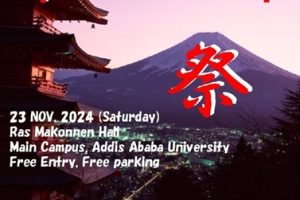
ADDIS ABABA:- These days, corruption has become one of the major problems threatening peace and justice on top of undermining economic, social, and democratic development, underscored the Commercial Bank of Ethiopia.
To curb this global challenge and to stand jointly against it, besides the national efforts of countries, international dabbles have been underway to translate international conventions, said Fekereselase Zewodu, Commercial Bank of Ethiopia Business Manager.
This year, the international anti-corruption day has been celebrated for 16th and 15th time at the international and national levels respectively with the grand theme; “let’s foster ethics and combat corruption to ensure sustainable peace and development.”
While celebrating this year’s anti-corruption day with the primary objective of galvanizing stakeholders to take their share in promoting and building ethics among different sectors, the Federal Ethics and Anti-corruption Commission (FEACC) focused on drawing attention to the grotesque outcomes of corruption on sustainable peace and development of a nation.
While thinking about the extremeness of corruption and development, asset or money usually becomes the dominant thought. Development can’t be achieved in the absence of resource. Corruption is an act of theft of the public assets for individual or group consumption.
According to him, thus “resources or money” can be taken as the targets of the two extremes; corruption and development. In this world of the extreme targets, if corruption takes the lead, development is unthinkable. Thus corruption poses a stranglehold on development.
Fekereselase highlighted that different studies indicate that though the magnitude of corruption crimes varies across the country, it as well exists elsewhere. For instance according to the various studies of World Bank, within a year time, USD 1trillion is paid in bribes and USD 2.6 trillion is siphoned via theft in various forms of corruption crime.
Regarding Africa, the 2015 studies show more than USD 50 billion worth assets per year is siphoned from the continent by unlawful ways. According to the recent article of Transparency International, this figure of asset has tragically shot up to USD 90 billion per year. More than 75 million citizens of sub Saharan countries pay bribes to get basic service from public institutions, to efface corruption cases and to acquire assistance of justice bodies.
The case in Ethiopia could not be any different as to the documents. Ethiopia is not included under a short list of a few best performing countries in international or in continental level. In the continent suffering the drainage of big asset, bribes paid in the form of corruption, 43 percent of citizens are languishing under big famine.
The resource that laid waste on corruption could have an influence in ensuring the accessibility of resources possible. The constructions of basic infrastructures, schools, health centers, clean water projects could have materialized. In general, millions of poor’s life could have been improved, he noted.
On the other hand, corruption puts peace under a question mark. This social maliece is becoming a root cause of spoiling peace and insecurity. In the setting of corrupted nations, transaction of illegal weapon and conflict is prevalent, and hence corruption is obvious to exist there, he added.Various studies have indicated that corruption, conflict, and society unsettlements are complications that fed on each other.
Corruption can erect obstacles on peace keeping functions. Peace keeping operations, on the other hand, not deliberately, can also stimulate and establish corruption and conflict-affected settings. While corruption stimulates social complaint and compromises state’s authority, it weakens the existence of stable and peaceful societies.
Furthermore, when corruption denies public service, particularly security service, it weakens the capability of the country to keep the least level of security without external support. The ways out in recognition of the global character of the threats caused by corruption as well as its connectivity with the Sustainable Development and Peace, preventing and combating corruption requires an all-inclusive variety of approaches.
The task takes on board all segments of the society. In playing due share of governance, the role of the media, civil society, private sector, organizations and the general public must be confirmed.
The Ethiopian Herald Sunday Edition, February 2/2020
BY MUSSA MUHMMED





